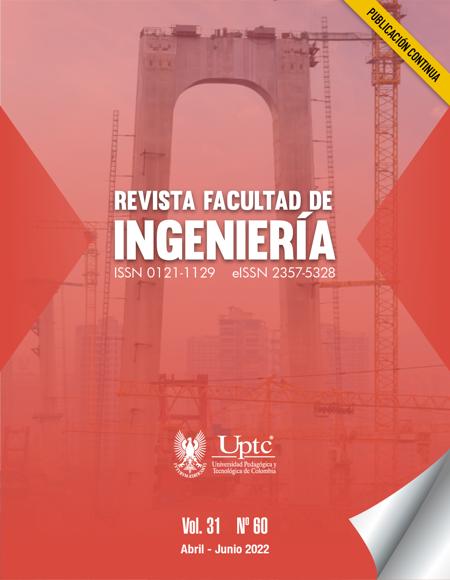Internet Memes as Reading Controls in a Geometric Road Design Course

Abstract
Technological development and access are currently leading to changes in the habits of population such as access to information. Short videos and images are used in newspapers, social networks, and university education. Images or internet-meme has been used in several areas of knowledge to improve the students learning, but not in the road design, which content is hand-delivered traditionally. Therefore, this study aims to show an academic activity using internet memes to analyze a weekly topic before synchronous virtual classes. To do this, four groups of students from the Geometric Road Design course participated. They were asked to review the weekly academic content before the class and prepare an internet meme, and their classmates graded those images. As a result, the memes can be used as reading controls before attending the virtual session. They could also be employed before a face-to-face class. The students agreed with the use of memes but were less enthusiastic about the peer review. Despite this trend, the memes produced in combination with peer review increases the possibility of a student to understand the subject. The groups gave an average score to the course of 8.86/10. They were aware of their self-learning with an average rating of 7.74/10. This article describes the experience of students using internet-memes and evaluates the pros and cons.
Keywords
active learning, distance learning, illustrations, road engineering
Author Biography
Yasmany García-Ramírez
Roles: Investigation, Methodology, Writing – original draft, Writing – review & editing, Visualization, Conceptualization, Formal Analysis.
References
- Oxford, Generation Z definition, 2022. https://www.lexico.com/en/definition/generation_z
- M. Prensky, Digital Natives, Digital Immigrants, no. 5. MCB University Press, 2001. DOI: https://doi.org/10.1108/10748120110424816
- R. Reddy, R. Singh, V. Kapoor, P. P. Churi, “Joy of Learning Through Internet Memes,” International Journal of Engineering Pedagogy, vol. 10, no. 5, pp. 116–133, 2020. https://doi.org/10.3991/ijep.v10i5.15211 DOI: https://doi.org/10.3991/ijep.v10i5.15211
- J. D. Brown, “What Do You Meme, Professor? An Experiment Using ‘Memes’ in Pharmacy Education,” Pharmacy, vol. 8, no. 4, e202, 2020. https://doi.org/10.3390/PHARMACY8040202 DOI: https://doi.org/10.3390/pharmacy8040202
- Merriam-Webster Dictionary, Meme Definition & Meaning, 2022. https://www.merriam-webster.com/dictionary/meme
- X. Dongqiang, L. De Serio, A. Malakhov, O. Matys, “Memes and education: opportunities, approaches and perspectives,” Geopolitical, Social Security and Freedom Journal, vol. 3, no. 2, pp. 14–25, 2020. https://doi.org/10.2478/gssfj-2020-0009 DOI: https://doi.org/10.2478/gssfj-2020-0009
- R. Patel, “First World Problems: A Fair Use Analysis of Internet Memes,” UCLA Entertainment Law Review, vol. 20, no. 2, pp. 236-256, 2013. https://doi.org/10.5070/LR8202027169 DOI: https://doi.org/10.5070/LR8202027169
- G. Bini, M. Montagnani, “Comprendere, creare e utilizzare in classe i meme matematici,” in IX Convegno Nazionale di Didattica della Fisica e della Matematica, 2019.
- O. Zakharova, Motivating potential of internet-memes in the foreign language learning with engineering university students, Tomsk State Pedagogical University, 2021. DOI: https://doi.org/10.23951/1609-624X-2021-2-7-16
- J. Yu, “Petroleum Engineering English Vocabulary Course Design Based on Memetics,” in 4th. Internationla Conference on Education, Management and Computing Technology, 2017, pp. 1438–1443. https://doi.org/10.2991/ICEMCT-17.2017.308 DOI: https://doi.org/10.2991/icemct-17.2017.308
- D. D. Wells, “You All Made Dank Memes: Using Internet Memes to Promote Critical Thinking,” Journal of Political Science Education, vol. 14, no. 2, pp. 240–248, 2018. https://doi.org/10.1080/15512169.2017.1406363 DOI: https://doi.org/10.1080/15512169.2017.1406363
- S. M. Underwood, A. T. Kararo, “Using Memes in the Classroom as a Final Exam Review Activity,” Journal of Chemical Education, vol. 97, no. 5, pp. 1381–1386, 2020. https://doi.org/10.1021/ACS.JCHEMED.0C00068 DOI: https://doi.org/10.1021/acs.jchemed.0c00068
- Y. García-Ramírez, “Active Learning Techniques in Remote Learning: a Case Study in Road Design Courses in Ecuador,” in LACLO, 2021, pp. 11–16. DOI: https://doi.org/10.1109/LACLO54177.2021.00030
- Known your meme, Finding Neverland, 2015. https://knowyourmeme.com/memes/finding-neverland
- Know your meme, Drakeposting, 2015. https://knowyourmeme.com/memes/drakeposting
- Know your meme, African Kid Crying With A Knife, 2016. https://knowyourmeme.com/memes/african-kid-crying-with-a-knife
- TikTok, TikTok oficial de Khabane lame (@khaby.lame), 2022. https://www.tiktok.com/@khaby.lame
- X. Ma, “From Internet Memes to Emoticon Engineering: Insights from the Baozou Comic Phenomenon in China,” in International Conference on Human-Computer Interaction, 2016, pp. 15–27. https://doi.org/10.1007/978-3-319-39513-5_2 DOI: https://doi.org/10.1007/978-3-319-39513-5_2
- N. Van Hattum-Janssen, J. M. Loureņo, “Peer and self-assessment for first-year students as a tool to improve learning,” Journal of Professional Issues in Engineering Education and Practice, vol. 134, no. 4, pp. 346–352, 2008. https://doi.org/10.1061/(ASCE)1052-3928(2008)134:4(346) DOI: https://doi.org/10.1061/(ASCE)1052-3928(2008)134:4(346)
- R. Jacquez, V. G. Gude, A. Hanson, M. Auzenne, S. Williamson, Enhancing critical thinking skills of civil engineering students through supplemental instruction, 2007.